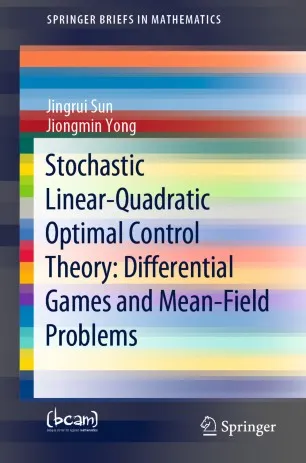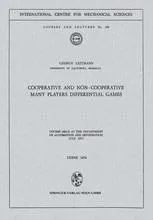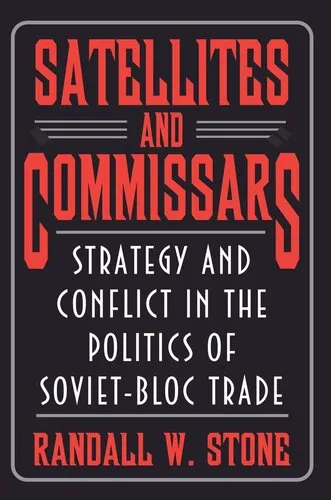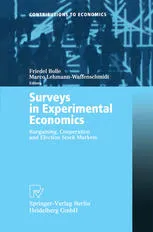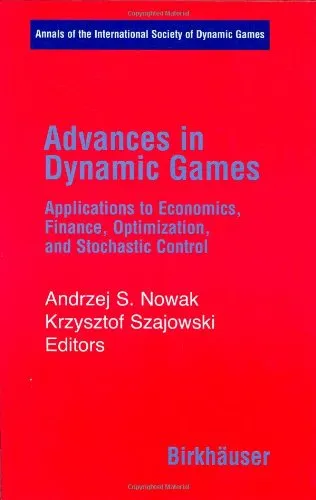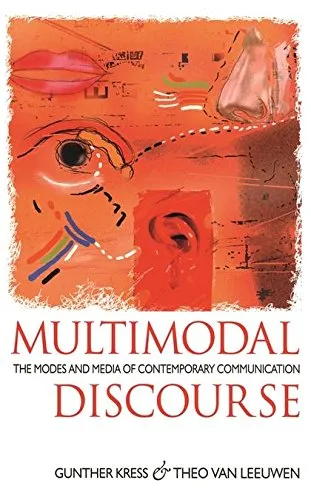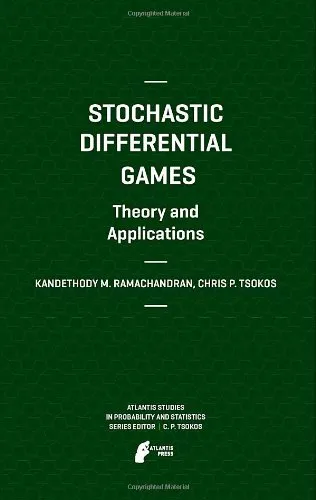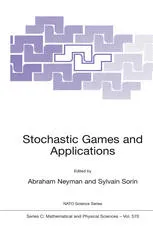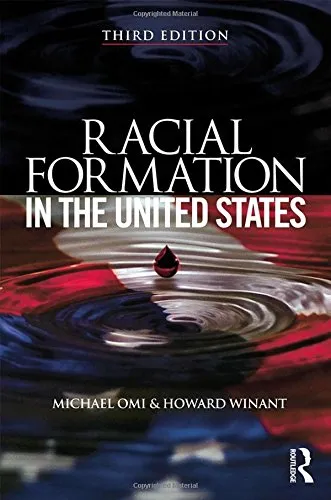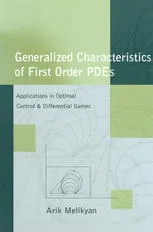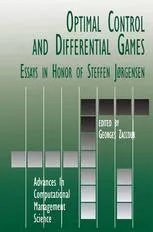Stochastic Linear-Quadratic Optimal Control Theory: Differential Games and Mean-Field Problems
4.0
Reviews from our users

You Can Ask your questions from this book's AI after Login
Each download or ask from book AI costs 2 points. To earn more free points, please visit the Points Guide Page and complete some valuable actions.Related Refrences:
Introduction to the Book
The book Stochastic Linear-Quadratic Optimal Control Theory: Differential Games and Mean-Field Problems, authored by Jingrui Sun and Jiongmin Yong, is a comprehensive exploration of one of the most foundational areas in control theory and applied mathematics. The text masterfully addresses topics such as stochastic linear-quadratic (LQ) optimal control, differential games, and mean-field theory. These subjects play a pivotal role in numerous fields, including economics, engineering, and financial mathematics. Written with both rigor and clarity, this book serves as an invaluable resource for researchers, students, and professionals eager to delve deep into the theory and applications of stochastic optimal control.
Rooted in mathematical precision, this book not only offers a solid theoretical framework but also provides detailed discussions on practical applications of the theories it presents. It emphasizes the synthesis of abstract concepts with real-world relevance, creating a unique balance between theoretical insight and applied utility. This introduction serves as a guide to readers who seek to understand the purpose, significance, and key themes explored in this groundbreaking work.
Detailed Summary of the Book
The book is centered on the study of stochastic linear-quadratic optimal control, a class of problems that involves minimizing quadratic cost functions in dynamic systems governed by stochastic processes. It advances fundamental ideas around feedback and optimization within uncertain and impact-driven environments. The authors structured the book into several well-organized parts, providing a seamless journey through each subject:
- An in-depth analysis of stochastic linear-quadratic optimal control problems, allowing readers to gain foundational knowledge before progressing to more complex theories.
- A dedicated section on stochastic differential games, which explores both cooperative and non-cooperative scenarios, covering key solution concepts such as Nash equilibrium and Pareto efficiency.
- Studies on mean-field theory, which introduces models that incorporate the collective behavior of large populations, reflecting modern issues in social sciences, finance, and more.
- A comprehensive treatment of solvability, existence, and uniqueness conditions for optimality systems, underscoring the mathematical underpinnings that support these theories.
The mathematical rigor is complemented by illustrative examples, giving practical weight to the theoretical arguments. The discussion spans concepts from stochastic processes, partial differential equations, and game theory, making the text truly interdisciplinary in scope.
Key Takeaways
Through its detailed treatment of various topics, this book leaves readers with several important takeaways, including:
- A deep understanding of stochastic linear-quadratic problems and the ability to apply them to dynamic systems driven by randomness.
- An appreciation for the role of feedback control mechanisms in uncertain environments and how optimal decisions can be computed in such scenarios.
- Techniques for solving differential games, equipping readers with the tools to tackle complex collaborative and competitive decision-making problems under uncertainty.
- Insights into mean-field models, a modern and effective approach to analyzing systems with a large number of interacting agents.
These takeaways make the book indispensable for anyone looking to master stochastic control theory and its applications.
Famous Quotes from the Book
While the book is heavily mathematical, it is interspersed with statements and remarks that capture the intellectual depth of the authors’ perspective. Here are some standout quotes:
"Uncertainty is not merely a challenge but a fundamental characteristic of the systems we seek to control and optimize."
"Game theory captures the essence of decision-making in environments where the actions of one influence the outcomes of others."
"The mean-field approach bridges the microcosm of individual behavior with the macrocosm of collective dynamics, providing insight into both."
These quotes underscore the intellectual depth and the practical relevance of the book’s key themes.
Why This Book Matters
This book stands out in the field of stochastic optimal control for several reasons. First, it consolidates and advances decades of research into a singular, cohesive narrative, making it accessible to a broad mathematical audience. Second, it lays the groundwork for future studies in high-impact areas such as artificial intelligence, networked systems, and financial engineering, where stochastic processes dominate decision-making paradigms.
For students and researchers, the book provides clear and detailed expositions that elucidate complex concepts. For practitioners, it offers powerful mathematical tools and insights to address real-world challenges involving uncertainty and optimization. Finally, its exploration of interdisciplinary connections—merging control theory, game theory, and mean-field problems—sets it apart from other texts in the field.
In sum, Stochastic Linear-Quadratic Optimal Control Theory: Differential Games and Mean-Field Problems is not just a book; it is a cornerstone for anyone seeking to build expertise in stochastic control theory and its far-reaching applications.
Free Direct Download
You Can Download this book after Login
Accessing books through legal platforms and public libraries not only supports the rights of authors and publishers but also contributes to the sustainability of reading culture. Before downloading, please take a moment to consider these options.
Find this book on other platforms:
WorldCat helps you find books in libraries worldwide.
See ratings, reviews, and discussions on Goodreads.
Find and buy rare or used books on AbeBooks.
1396
بازدید4.0
امتیاز0
نظر98%
رضایتReviews:
4.0
Based on 0 users review
Questions & Answers
Ask questions about this book or help others by answering
No questions yet. Be the first to ask!
